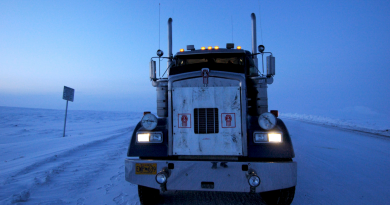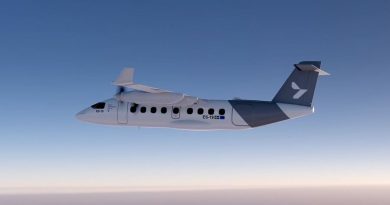U.S. Coast Guard to send icebreaker through Northwest Passage with Canada’s consent
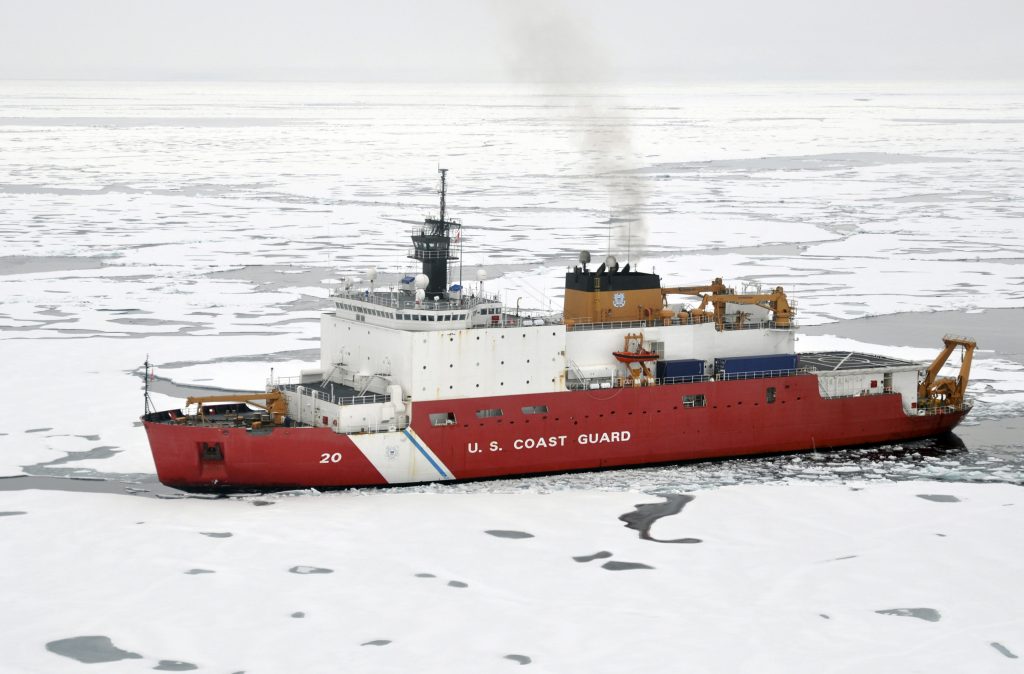
The U.S. Coast Guard is working with the Canadian government to send its medium icebreaker Healy through the Northwest Passage in late summer as part of Washington’s strategy to expand American presence on the world’s oceans, Canadian officials confirmed late Friday.
Speaking during the annual address on the State of the U.S. Coast Guard in San Diego, California on Thursday, USGC Commander Admiral Karl Schultz said U.S. officials along with Global Affairs Canada are planning “a Northwest Passage transit for cutter Healy later this year.”
According to the Arctic Icebreaker Coordinating Committee of the U.S. University-National Oceanographic Laboratory System, Healy will begin its voyage in mid-August in Dutch Harbor, Alaska, and move east through the Northwest Passage. The icebreaker is expected to reach Nuuk, Greenland, in mid-September.
Officials at Global Affairs Canada said Friday that the U.S. Coast Guard approached the federal government regarding a possible voyage of the Healy through the Canadian Arctic Archipelago in the summer of 2020.
“As provided in the 1988 Agreement Between the Government of Canada and the Government of the United States of America on Arctic Cooperation (Arctic Cooperation Agreement), U.S. icebreakers require Canada’s consent to navigate through the waters of Canada’s Arctic archipelago,” Grantly Franklin, a spokesperson for Global Affairs, told Radio Canada International in an email.
“The United States has also submitted a request to conduct marine scientific research while in waters under the sovereignty or jurisdiction of Canada.”
The federal government is reviewing this request, Franklin said.
“Canada is currently collaborating with the U.S to make sure that the Healy will be in a position to respect Canadian rules and regulations, including those related to reducing the spread of COVID-19, while navigating in Canadian Arctic waters,” Franklin added.
According to the U.S. Coast Guard, Healy last transited the Northwest Passage in 2003. The last U.S. Coast Guard cutter to make the trip was USCGC Maple in 2017, coast guard officials told Radio Canada International.
Healy was crippled last August after suffering an engine failure that required a complete replacement of the 140-ton power train.
“Our Surface Forces Logistics Center successfully completed emergency repairs on the Healy, returning her to homeport in preparation for a historic Arctic patrol this summer,” Schultz said.
‘Normal business’
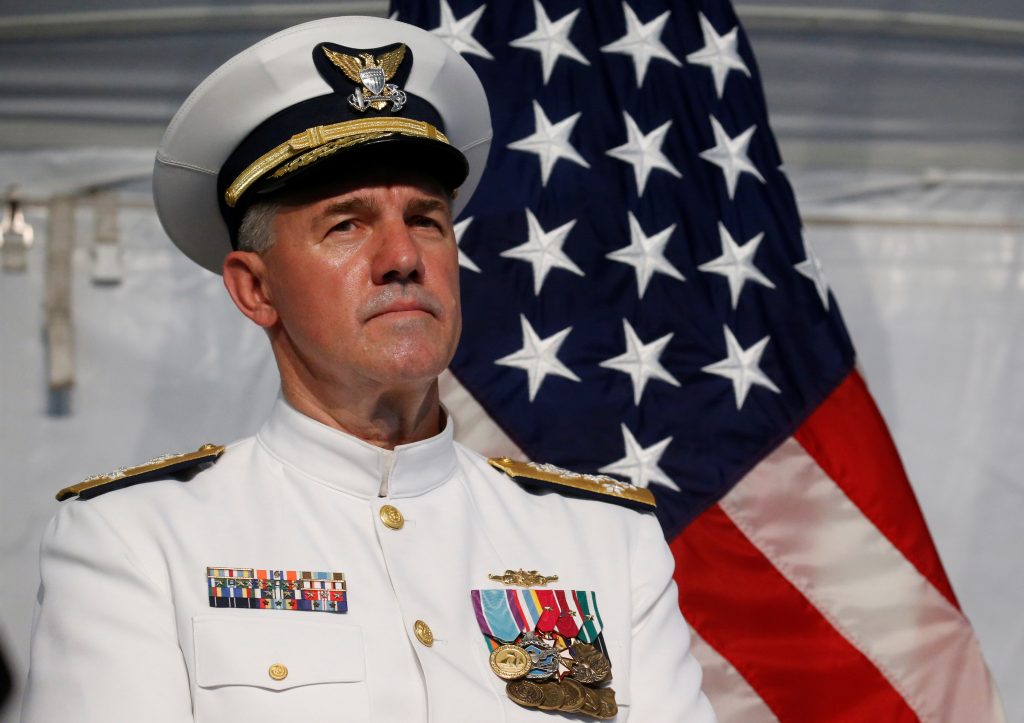
The announcement by Schultz comes barely three months after the release by the U.S. Navy, Coast Guard and Marine Corps of the Tri-Service Maritime Strategy, which called for a “sustained American naval presence and partnerships in the Arctic region.”
Canadian defence expert Rob Huebert said the fact that Washington has asked for Ottawa’s consent for the transit is a “clear indication that the relationship is back to normal from the Trump era.”
Cooperating with the U.S. Coast Guard on this transit would send a clear international message that despite all the blustery rhetoric from the Trump administration that questioned Canada’s “illegitimate” claim to the Northwest Passage, Canada is serious about working with the new Biden administration for the common defence of the North American continent, Huebert said.
Troy Bouffard, director of the Center for Arctic Security and Resilience at the University of Alaska Fairbanks, said the transit is part of “normal business” between Ottawa and Washington in the Arctic.
The transit arrangement falls squarely under the 1988 U.S.-Canada Arctic cooperation agreement, Bouffard said.
Under the agreement, Washington “pledges that all navigation by U.S. icebreakers within waters claimed by Canada to be internal will be undertaken with the consent of the Government of Canada.” And Ottawa in turn agrees to grant that consent whenever asked.
Canada claims that the waters of the Canadian Arctic Archipelago that constitute the Northwest Passage are internal waters, but the U.S. disagrees and considers the passage an international strait.
The 1988 “agreement to disagree” allows both parties to stick to their legal claims while working together in the North American Arctic, Bouffard said.
“I think this is the continuation of the bilateral cooperation that needs to happen,” Bouffard said. “I don’t think this is a legacy of any administration. This is something that the United States and Canada have managed for many-many years.”
Learning from Canadians
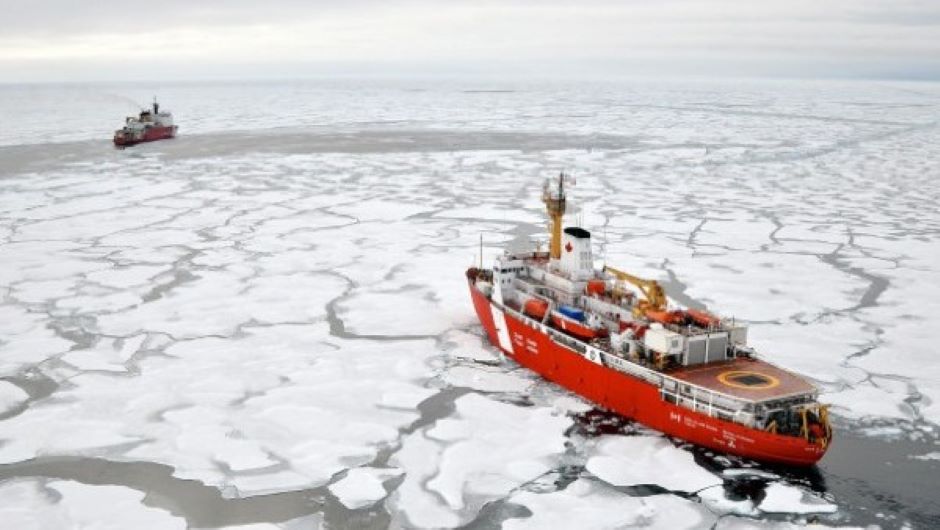
Given the rise in tensions between the West and China and Russia, it’s important for Washington and Ottawa to cooperate in the Arctic, he said.
“I’m excited. I think this is a very timely move that shows the importance of our bilateral relationship, the North American defence, as well as cooperating in an environment that we talk about so much,” Bouffard said.
“I expect that this was received well by Global Affairs Canada, in both of our coast guards and I hope to see that the transit would be cooperatively and even jointly escorted by the Canadian Coast Guard, as well as the Royal Canadian Navy.”
Bouffard said he would love to see the RCN’s newly commissioned Arctic offshore patrol vessel HMCS Harry deWolf accompany Healy during its transit.
“It’s going to be an amazing experience for the Coast Guard cutter Healy and its crew, to learn from the experts and the operators of the Canadian Coast Guard, the Royal Canadian Navy even, sea ice navigators on what kind of changes has Canada experienced in the Northwest Passage,” Bouffard said.
Related stories from around the North:
Arctic: NATO’s Arctic dilemma: Two visions of the Arctic collide as NATO and Russia flex muscles, Eye on the Arctic
Canada: Experts warn of potentially ‘deadly’ great power games in the Arctic, Radio Canada International
China: China, Russia singled out in new U.S. Arctic defense strategy, Eye on the Arctic
Denmark: Pompeo to talk Arctic at upcoming meeting with Danish Foreign Minister, Eye on the Arctic
Iceland: Nordics should aim for common approach to China’s Arctic involvement says report, Eye on the Arctic
Norway: Increase in NATO scrambled jets from Norway, The Independent Barents Observer
Russia: Russian navy conducts major manoeuvres near Alaska, The Associated Press
Sweden: Sweden’s FM calls for more EU involvement in Arctic as country hosts EU Arctic Forum, Radio Sweden
United States: NATO’s new Atlantic command to keep watch over the European Arctic, Eye on the Arctic

